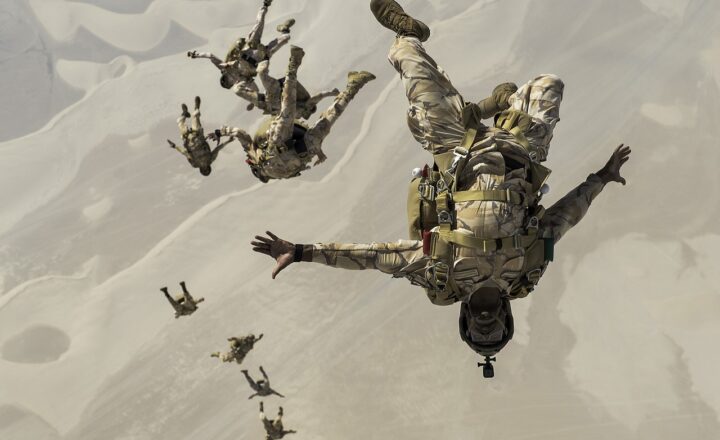The CIA’s Alleged Involvement in Foreign Assassinations
November 15, 2024

The Central Intelligence Agency (CIA) has long been a subject of intrigue, speculation, and controversial tales of covert operations. Among the most disturbing discussions surrounding its operations are allegations of involvement in foreign assassinations – operations that reportedly aimed to eliminate threats to U.S. national interests abroad.
This article delves into the history, operations, and the implications of alleged CIA involvement in foreign assassinations, revealing the murky waters where ethics, politics, and national security intertwine.
1. The Historical Context of CIA Operations
The CIA was established in 1947, taking over the responsibilities of the Office of Strategic Services (OSS) which had operated during World War II. During the Cold War, the organization was charged with overseeing intelligence operations that often included covert actions against perceived threats. This period saw a dramatic increase in the use of covert operations, leading to many debates over legality and ethics, especially when it came to assassinations.
**Early Cold War**
During the early years of the Cold War, the CIA was engaged in various operations that sought to undermine communist influence in foreign nations. This period witnessed several documented instances of the CIA’s attempts to destabilize governments through means that some would consider assassination. One pivotal moment was the coup d’état against Iranian Prime Minister Mohammad Mossadegh in 1953. Though not an assassination, this operation paved the way for the Shah’s regime, shaping Iran’s modern history and demonstrating the CIA’s willingness to intervene in foreign affairs.
**The Phoenix Program**
Arguably one of the most controversial and widespread programs was the Phoenix Program during the Vietnam War. From 1965 to 1972, this program aimed to neutralize the Viet Cong infrastructure through covert actions which included targeted assassinations. Estimates claim that tens of thousands were killed under this program, raising serious moral and ethical questions about the lengths to which the CIA would go to achieve its objectives.
2. Assassination as a Tool of Covert Operations
The practice of assassination has often been cloaked in secrecy, and the CIA has repeatedly denied direct involvement in such operations. However, leaked documents, whistleblower testimonies, and investigative journalism have pointed to various instances that raise alarms about the agency’s practices.
**The Doctrine of Assassination**
The U.S. government officially repudiated assassination as a tool of foreign policy in the 1970s, largely as a result of public backlash and congressional oversight—especially following the investigations by the Church Committee. Despite this, the CIA continued using covert operations to target specific individuals deemed threats to national security. A significant concern rests with the nuances of these operations; who determines the threat, and what legitimizes the action?
**Contemporary Allegations**
In modern contexts, there have been numerous allegations regarding the CIA’s involvement in killing diplomatic figures and foreign leaders. Notable examples include speculation around the deaths of certain Middle Eastern leaders, alleged drone strikes, and the broader implications of fighting terrorism in regions like Yemen and Pakistan. The question remains: how far should a government go in eliminating perceived threats?
3. Notable Cases of Alleged Assassinations
Several high-profile cases associated with the CIA have raised eyebrows and stirred considerable debate.
**The Killing of Patrice Lumumba**
Patrice Lumumba was the first democratically elected Prime Minister of the Congo. Following his rise to power, Lumumba faced resistance from both internal and external forces. Shortly after he took office in 1960, the CIA allegedly plotted his assassination, which was ultimately executed in January 1961. While the U.S. government denies direct involvement, documents have surfaced suggesting operational connections between the CIA and Lumumba’s demise.
**Operation Condor**
In the 1970s, a collaboration among South American dictatorships to eliminate opposition and leftist influence became known as Operation Condor. This operation, which the CIA allegedly supported, resulted in thousands of enforced disappearances and deaths across Argentina, Chile, and other nations. Though the extent of CIA involvement remains complex and obscured, its influence undoubtedly shaped the trajectory and brutality of these actions.
**The Case of General Manuel Noriega**
Noriega, the former Panamanian military leader, had a convoluted relationship with the CIA before being labeled a drug trafficker and enemy of the state. The U.S. invasion of Panama in 1989, which led to Noriega’s capture and the subsequent removal of his regime, was a clear demonstration of an extreme measure, equal parts military intervention and an assassination of his power.
4. The Ethics of Assassination
The implications of alleged CIA involvement in assassinations pose difficult ethical questions. Advocates of such practices argue that eliminating dangerous leaders can prevent future threats and protect national security. Critics, however, emphasize the potential for abuse, the violation of international laws, and the moral implications of taking human life.
**Legal Framework and Contradictions**
International law remains ambiguous regarding targeted killings. While the UN Charter prohibits the use of force against another state, there are exceptions for self-defense and when authorized by the UN Security Council. The legality of the U.S. actions often relies on interpretations of national security interests, creating a murky grey area that complicates accountability.
**Violations of Human Rights**
Many of the operations attributed to the CIA have resulted in significant harm to civilians and violated human rights norms. The legacy of these assassinations has often left behind a trail of pain and suffering, undermining any purported reasons for their justification.
5. Modern Implications and the Path Forward
In our current global landscape, the specter of covert operations and alleged assassinations continues to loom large. As new technologies emerge, including drone strikes and cyber operations, the debate around ethical implications and accountability is more critical than ever.
**Increased Oversight and Accountability**
In response to past controversies, calls for greater oversight and transparency have gained traction. Organizations advocating for human rights emphasize the need for thorough investigations into alleged CIA operations, demanding accountability to prevent abuses.
**Future of Covert Operations**
The question persists: will covert operations become more transparent, or will they continue to operate within a realm of secrecy that breeds speculation and mistrust? The balance between ensuring national security and upholding human rights remains as contentious as ever.
**Conclusion**
Understanding the CIA’s alleged involvement in foreign assassinations unveils the complicated ethical and moral dilemmas governments face in the realm of national security. While the security interests of nations are paramount, they should never overshadow the fundamental rights to life and dignity.
As history continues to unfold, fostering thoughtful dialogue and rigorous oversight can ensure that the past mistakes of covert operations lead us toward a future guided by principles of justice, ethics, and accountability.







